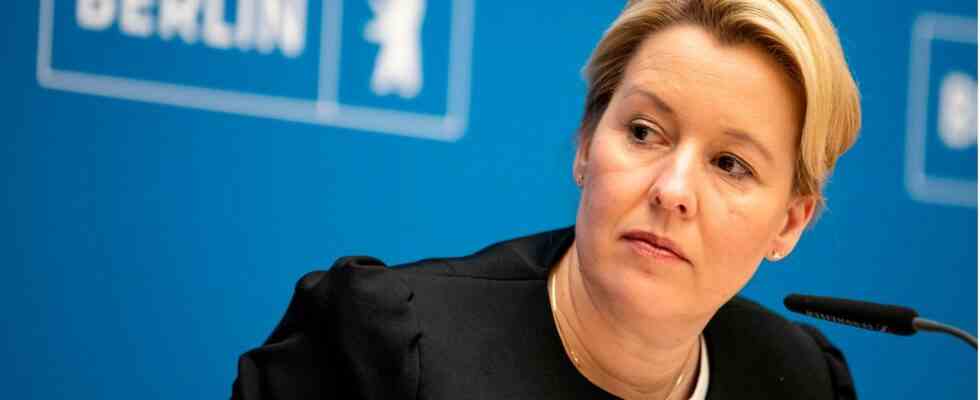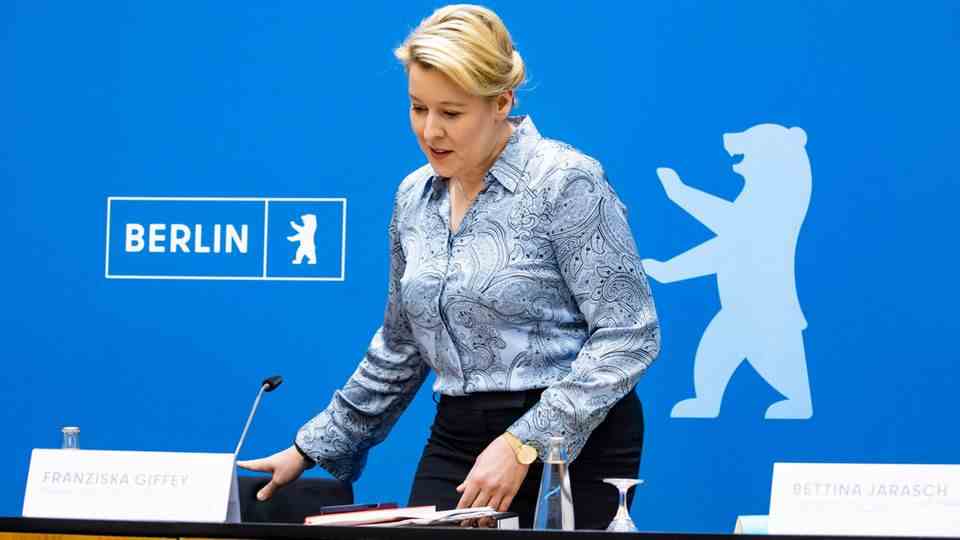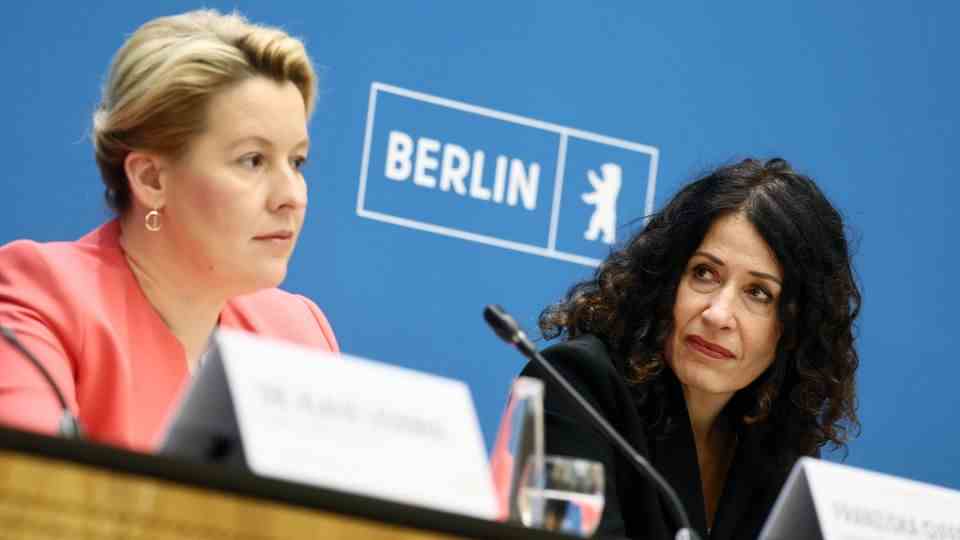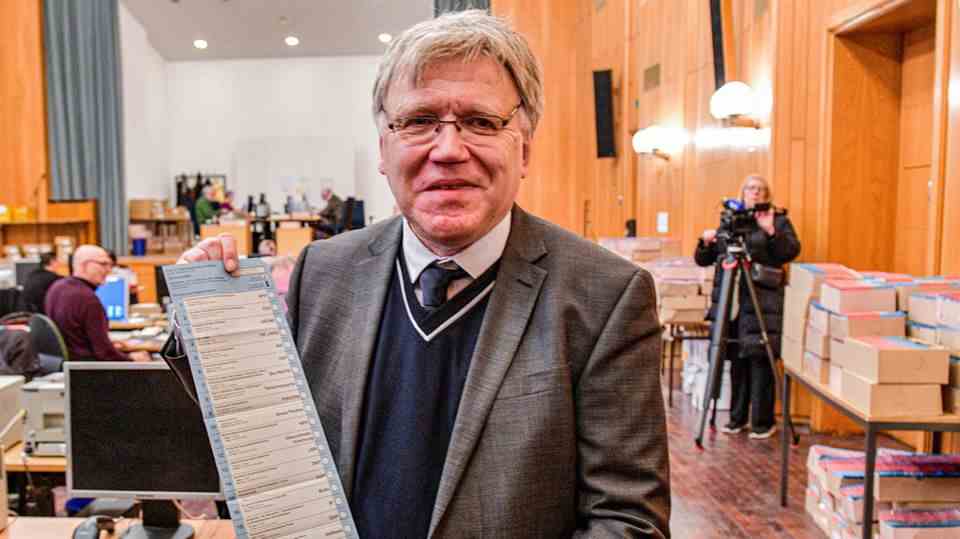Redial
Three reasons why the Berlin election is (again) exciting
Franziska Giffey, Governing Mayor of Berlin
© Fabian Sommer / DPA
Berlin repeats its botched 2021 election. Only this time the outcome seems anything but to be expected. The short overview.
So: to a new one. After the botched ballot in September 2021, which the state constitutional court had declared invalid due to numerous glitches and “serious systematic deficiencies”, Berlin has the choice again. And for many of the approximately 2.4 million eligible voters, this Sunday could feel like a déjà vu.
Since this is a repeat election and not a new election, practically nothing changes in the modalities – the legislative period ends in 2026, i.e. after five years, and the parties are running with the same candidates. Only candidates who did not want to or could not compete again were replaced by others.
So: A choice to forget?
Not at all. The repeated ticking of the House of Representatives and the twelve district parliaments could break with alleged certainties – and be exciting for several reasons.
First, the polls point to a duel
A three-way battle turns into a duel, and this duel a very close one – with an unexpected winner? The most recent polls put the CDU ahead, of all people. The Christian Democrats have not won an election in the capital since 1999. In the breakdown election, the SPD still had to defend its permanent reign (since 2001) against the Greens, most recently the SPD and Greens competed for second place in the polls – and that also seems outdated.
The numbers: In recent surveys, like the ZDF “Poltibarometer Extra” and a Civey survey by the “Daily Mirror”lies the CDU with 24 to 25 percent ahead. The SPD comes to 21 to 22 percent and thus ranks ahead of the greens, which reach 17 percent. The left is 11 percent that AfD at 9 to 10 and the FDP at 6 to 7 percent.
So this could be fun. The CDU is contesting the top position of the ever-first Social Democrats, the Greens are hot on their heels and the FDP is moving dangerously close to the five percent death zone. But: Surveys are always only moody snapshots and should therefore be viewed with caution. Also: What would an election victory be worth without a government majority?
Second: Franziska Giffey has a lot to lose
CDU lead candidate Kai Wegner could indeed achieve a spectacular election victory – since Klaus Wowereit became Governing Mayor in 2001, the SPD has governed without interruption in various coalitions in the Red City Hall – but still lose out.
In purely mathematical terms, a lot would be possible, but not necessarily realistic: In the event of an election victory, the CDU could try to Jamaica coalition (Black-Green-Yellow) – however, this is considered unlikely due to the large differences between the CDU and the Greens in transport policy. Especially since the FDP has already spoken out against a coalition with the Greens. So a so-called Germany coalition (Black-Red-Yellow)? It would be difficult to convey to the Social Democrats that the current Red-Green-Red Coalition lead – which, according to polls, would still have a majority. So the SPD, the Greens and the Left could move forward together, even if the CDU won the elections.
The good news: Bettina Jarash, the Green Party’s top candidate, would like to continue this alliance. The bad: She wants to lead the new-old coalition herself and Franziska Giffey (SPD) as governing mayor. If the Greens actually finish ahead of the SPD, albeit narrowly, it could be uncomfortable for Giffey. The polls suggest that she was not able to use the year and a half in office for herself (and for the SPD) – and for hours in the 2021 election it looked as if Jarasch’s Greens would win.
Third: Berlin under observation
This much is certain: “There must be no more disasters like 2021,” says state returning officer Stephan Bröchler. There should be more ballot papers, more poll workers and more polling booths. That was “the big shortcoming” in the botched vote, “we had too little of everything”. The capital paid around 40 million euros for the election, more than ever before, in order to wipe out the previous disgrace.
The unprecedented fiasco also made international headlines. Incorrect, missing or hastily copied ballot papers, too few ballot boxes, the temporary closure of polling stations and long queues in front of them – in around half of the polling stations people were still voting after 6 p.m.
The renewed attempt after the “chaotic elections” (“Financial Times”) observed. Not least from Council of Europe election observerswho have been invited to strengthen citizens’ confidence in democratic processes.
The ballot will not be completely error-free, state returning officer Bröchler is realistic, but also “confident that this election will work”. All those responsible are “ready to go”, the goal of “as frictionless elections as possible” is set.
So: to a new one.





